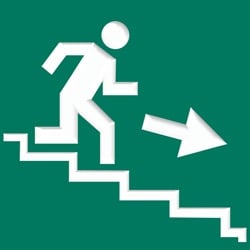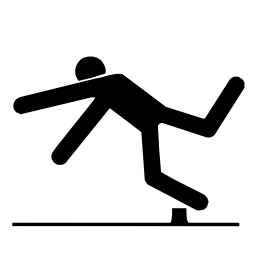
Trying to figure out why your SAT score went down on a retake? Or are you just wondering how much a digital SAT score can drop if you retake the test?
Find out the likelihood of an SAT score decrease, how much your SAT score could decrease by, and how to make sure your score goes up, not down.
How Likely Is an SAT Score Drop?
The College Board recommends that students take the digital SAT twice: once in their junior year and once in their senior year. (Of course, you don't need to follow this recommendation exactly, and we have other suggestions if their rec doesn't work for you.) They state that most people who retake the SAT improve their score.
The College Board released data specifically on juniors who retook the older, pre-digital version of the SAT as seniors – so if you’re younger this might not apply exactly to you, though you can expect the same general principles to hold. According to that data on SAT retakes:
- 55 percent of juniors taking the test improved their scores as seniors
- 35 percent had score drops
- 10 percent had no change
So while we don't have any data yet about the digital SAT, it's important to keep this information from the old SAT in mind. Additionally, the higher a student's scores were as a junior, the more likely it was that the student's subsequent scores would drop. The lower the initial scores, the more likely it was that the scores will go up.
On average, juniors repeating the SAT as seniors improved their total score by approximately 40 points. About 1 in 25 gained 100 or more points on Reading or Mathematics, and about 1 in 90 lost 100 or more points.
So the odds are if you retake the SAT, your score will increase – just over half of these students had a score increase. But this increase isn't huge, just 40 composite points. Plus, it’s also not unlikely that your score will either stay the same or drop (45% of retakes in College Board’s study).
It’s unlikely you’ll lose more than 100 points on one section – meaning a 200 point decrease is about the max you should expect, and anything larger is cause for serious concern.
As a reminder, this data is from an older version of the SAT, but we expect the results to stay fairly similar for the digital SAT.
Be Careful if You Start Out With a Higher Score (680+)
According to the same data from the College Board, based on the old SAT, if you initially earned a section score of 680 or higher, you're the most likely to lose points on an SAT retake. The average drop in Reading is 4 points, and there is actually an average gain in Math of 4 points. However, looking at the breakdown of score increases and decreases, students who scored 680 or higher the first time are the most likely to see SAT point decreases of 20 to 40 or even 50 to 70 points.
So if your section scores are 680 or higher, since you’re in the category most likely to see a score decrease, you should be very careful when studying for your retake.
Why Would My Score Decrease?
We’ll separate this discussion into smaller score drops (up to 100 points off your composite) and larger drops. Essentially, the bigger the score drop, the more serious the issue you have to address. We'll discuss what could have gone wrong on your retake, and how to make sure a subsequent SAT retake goes better.
Statistically Likely Drops (Up to 100 Points Down)
The first thing to consider, even though it may seem counterintuitive, is that maybe you did better than expected the first time you took the SAT. Maybe you had particularly good luck and guessed correctly on lots of questions, or you connected better with the Reading and Writing passages. So your lower SAT retake score, rather than being a sign that you got worse, could just be a correction to your surprisingly high first time score.

However, it’s also possible you had decent luck the first time but bad luck on your retake. For example, if you earned 50 raw points on Math last time for a score of 700, but ran out of time and missed six more Math questions the second time, your raw score of 44 would get you a 650 – a 50-point drop.
In other words, missing just six questions can translate to a 50-point section drop. Even small score changes can have a large effect on your final composite. This can easily happen if you face a tough passage you don’t vibe with or a few tougher math questions.
How unlucky you get is also affected by how long you studied for your retake – the less time you put in, the more likely it is you’ll make the same mistakes and additionally be open to bad luck. Or you may forget about mistakes you are prone to making.
Also, how did you study? If you didn’t include enough strictly-timed test practice, you could have struggled with timing on your retake, which leads to point drops. Plus, if you spent all your time studying for your worst section, you may see score drops on the other one, leading to an overall composite drop. Putting in a bunch of time to improve a low Math score won't help your overall composite if your Reading and Writing score is much lower the second time.
Also, did your test center have problems? Not getting the proper amount of time on a few sections or dealing with noise or uncomfortable temperature can affect your score (learn how to report a test center here).
Finally, the reason could have been more personal – maybe you slept less before your SAT retake or weren’t feeling well that day. Whatever the case, you should try and figure out what could have gone wrong for you if you’re thinking about retaking the SAT for a third time.
Large Drops (Between 100 and 200 Points Down)
If your composite drops by this much, you likely have a more serious problem you should identify.

It could be you’re using a new strategy that doesn’t work for you, especially if the point drop came mainly from one section. For example, did you try going straight to the questions on the Reading and Writing section rather than reading the passage first, or plugging in answers for Math instead of solving with algebra? A strategy that works for one student could cause another to waste time and lose points. (This is why we recommend doing a ton of practice problems as part of your SAT study regimen: so you can try out different strategies and find what works for you.)
If the point drops were spread out between the two sections, it could be your guessing strategy and/or timing were worse this time around. Or maybe your testing conditions were markedly worse this time – again, read about possible test center violations here. Or perhaps you were feeling particularly stressed, sick, or nervous on your retake. In short, something happened to affect your overall test performance.
You should work on identifying what you think went wrong before retaking the SAT again (if you decide to) if you saw a point drop this large.
Very Large Drops (200 Points or More)
From the data above, only 1 in 90 students will see a score decrease this dramatic. In other words, something is very seriously going wrong for you – whether it’s your test strategy, a bad test center, or maybe even a mis-scoring.

If your SAT score is in free fall, you have a serious problem...
If you saw the score drop on just one section – say your Math score fell from 660 to 460 – that’s a huge red flag. You may have tried out a new strategy on that section that was very ineffective. But it’s more likely that you might have messed up filling in your answers – maybe you got off by one line when bubbling in, for example. This could cause you to get a ton of questions wrong, resulting in an enormous score drop. (This is one of multiple reasons the SAT is now digital; it removes the need to bubble in your answers with pencil and paper.)
If the score drop was spread between sections – roughly a 100-point drop in each – that speaks to a test-wide problem. Maybe you struggled with timing, used an ineffective guessing strategy, or were feeling unwell on test day. Or maybe your test center was particularly bad this time around.
You need to figure out what went wrong so that if you do attempt to retake the SAT again, you can increase your odds of getting a better score.
How to Prevent an SAT Score Decrease
We've discussed why an SAT score can drop on a retake. But how can you make sure that your SAT score goes up if you retake the test? Follow our advice below to make sure your retake is successful.
#1: Focus on Your Weak Points
One benefit of retaking the SAT is that you can use your score report from the first time around to analyze your weak spots. You want to make sure you get the points you missed the first time around when you retake the SAT, so spend some time analyzing your first score report.
To take an example, if your Math score was a 650 the first time, and your goal is to get 700 or higher on your retake, look closely at your score report. The SAT score report not only gives your final composite score, it breaks down how many questions you got correct and incorrect and in what areas.
For example, you'll be able to see if you missed more Math questions in algebra or geometry. Based on that knowledge, work on filling the knowledge gaps that prevented you from getting a higher score. The more point gains you can make, the less likely your score will decrease on a retake.
So what can you do to improve a low section score? Check out these section-by-section guides:
SAT Reading and Writing
- The Ultimate Study Guide for SAT Reading and Writing
- What's Actually Tested on the SAT Reading and Writing Section?
SAT Math
- The Best SAT Math Prep Books
- Browse Math Help by Topic: Statistics, Fractions, and More
#2: Don’t Neglect Your Strong Areas
Even though it’s important to improve your weak points, don’t ignore the parts of the SAT you think you have in the bag. It’s not unlikely that your highest section score could drop if you don’t study for it.
Especially if you did fairly well on your first SAT (680 or higher on any section), it’s pretty likely you will see some score decreases the second time around. So you need to be practicing for the entire test to prevent your overall SAT composite from dropping.
To continue our example, even if you get your Math score up to 700, if your Reading and Writing score drops by 50 points (which is a statistically likely drop), your composite won’t improve.

Or it could drop!
So how do you practice for the entire test? Make sure you’re familiar with SAT timing and SAT scoring so you know how much time you can spend per question, and the raw points you need on each section to reach your score goal. Also, make taking full, strictly-timed practice tests a regular part of your study routine. Which brings us to the third point...
#3: Practice, Practice, Practice
Don’t underestimate your second try at the SAT! Even though you’ve taken (and studied) for the test once before, you’ll need to keep working hard if you want to earn a higher score on your retake.
Getting lots of SAT practice in will reduce the score variation caused by harder/easier test questions or good/bad luck on test day.
Time yourself carefully whenever you take practice SAT sections (or full practice exams). Set target raw scores for each section and keep practicing until you hit them consistently.
Also, be ruthless about analyzing your mistakes. Don’t just grade practice problems quickly and then move on. Figure out why you got a question wrong and what you can do to make sure you never get it wrong again. (For more on analyzing your wrong answers, I highly recommend Allen Cheng's guide to getting a perfect SAT score.)
#4: Don't Forget Logistics
Finally, you should make sure outside factors don’t mess with your SAT retake score. Even if you study effectively, a bad test center or lack of sleep could hurt your score.
Make sure you’re using the best test center for you. Also be sure that you’re getting enough sleep and following the guidelines to be ready the morning of the test. Last-minute cramming the night before the SAT won’t improve your score!
Finally, give yourself enough time before a retake – if you retake the SAT on the next possible test date, you might not give yourself enough time to practice and improve. Consider giving yourself between two to four months to study for your retake to ensure your score will go up.
What’s Next?
Check out SAT tips from our resident full-scorer. If you follow these guidelines, even if you’re not going for a 2400, your score will almost certainly increase.
Learn more about how the SAT is scored to know how many questions you need to get correct for a score increase. Also read more about SAT timing to make sure your pacing is fast enough.
Want some more motivation for studying for an SAT retake? Read about SAT scores for the Ivy League and scholarships you can earn for high SAT scores.
Do you have a hard time sticking to your SAT study plan? Learn how to beat procrastination once and for all!












